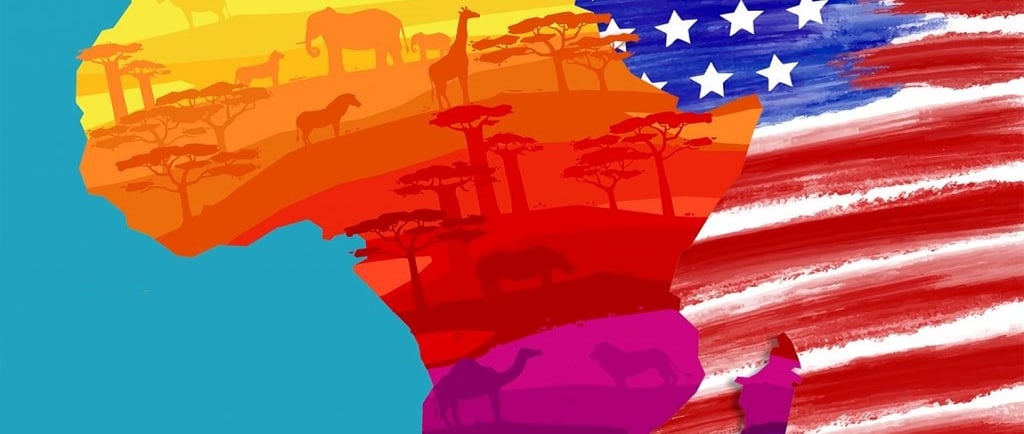U.S. Policy Shift in Africa: Implications of Secretary Rubio's Canceled Visit to Kenya and Ethiopia
Dr. Ghada Kamal, Expert in African Affairs, Assistant Professor of Political Science, Al-Wefaq International University
5/8/20253 min read


The recent cancellation of U.S. Secretary of State Marco Rubio's inaugural Africa tour, slated for late April 2025 with stops in Kenya and Ethiopia, signals a potential shift in U.S. foreign policy towards the continent. The visit was intended to address pressing security challenges, foster economic and trade cooperation, and coordinate efforts against terrorist and armed organizations in the region. This decision by the Trump administration suggests a recalibration of U.S.-Africa relations, potentially indicating a diminished prioritization of engagement with African nations. This analysis explores the influential dimensions surrounding this cancellation and its potential repercussions for regional dynamics and international partnerships.
I. Key Factors Influencing the Decision
Several interconnected factors likely contributed to the U.S. Secretary of State's decision to cancel his first African tour:
Deepening Sino-Kenyan Strategic Ties: Kenya and China significantly strengthened their relationship during President William Ruto's visit to Beijing (April 22-26, 2025), elevating ties to a "new level of strategic partnership." This visit culminated in numerous agreements spanning economic, trade, educational, technological, and infrastructure sectors, including airports and railways. Enhanced security and military cooperation, encompassing training, counterterrorism, and military industries, were also focal points. Both nations underscored the importance of safeguarding mutual interests and advocating for a multipolar global order, a stance particularly resonant amid the ongoing U.S.-China trade tensions. Kenya's status as a major beneficiary of the Belt and Road Initiative (BRI), with substantial Chinese loans financing key infrastructure like the Port of Mombasa and railway lines, positions China as its largest creditor. This burgeoning partnership, especially President Ruto's visit coinciding closely with the planned U.S. tour, likely fueled U.S. apprehension, particularly in light of the Trump administration's assertive trade policies.
Strengthened Sino-Ethiopian Military and Economic Links: Ethiopia has also cultivated closer ties with China, exemplified by a "military cooperation agreement" designed to bolster its defense capabilities, including capacity building and advancements in military industries and technology. Furthermore, China is Ethiopia's largest investor, with Chinese funding underwriting approximately 60% of its development projects. The Ethiopian government's pronounced engagement with China is a likely source of concern for Washington, potentially influencing the decision to postpone high-level diplomatic engagement.
The "America First" Policy of the Trump Administration: President Trump's "America First" agenda, implemented since his inauguration in January 2025, has had tangible consequences for U.S.-Africa relations. Key among these are:
A 90-day freeze on U.S. foreign aid, suspending USAID programs critical to many African nations, including Kenya and Ethiopia, in sectors like education, health, and infrastructure.
The imposition of new customs duties (approximately 10-14%) on imports from various countries, heavily impacting Kenyan and Ethiopian goods.
These measures are poised to adversely affect African economies, potentially exacerbating socio-economic challenges and regional instability, and may signal a broader U.S. disengagement that makes such high-level visits less of a priority.
II. Potential Repercussions of the Canceled Visit
The cancellation of the Secretary of State's visit is likely to have several significant repercussions:
Ascendance of China as a Preferred Strategic Partner: The U.S. policy shift could accelerate African nations' pivot towards China. Beijing's appeal is amplified by its substantial investments through the BRI, its elimination of tariffs on many products from African countries (as of last year), and its "flexible" approach to providing grants and loans, often with fewer governance-related conditionalities than Western aid. This environment may encourage African countries to further solidify and expand their strategic alliances with China, consequently increasing Beijing's influence across the continent.
Increased Focus on Self-Reliance and Diversified Partnerships: The evolving global landscape, characterized by U.S. retrenchment and heightened U.S.-China competition, may compel African nations to prioritize the development of indigenous resources and cultivate diverse regional and international partnerships. This could involve re-evaluating foreign policies and seeking alternative or supplementary alliances with actors such as Russia, Turkey, the UAE, or the European Union. Such diversification could bolster national sovereignty and strengthen regional cooperation frameworks.
Diminished U.S. Influence in Africa: Recent U.S. actions, including the tour cancellation and restrictive trade and aid policies, risk eroding American partnerships and diplomatic standing in Africa. African nations might increasingly align with other global powers like China and Russia, potentially pursuing agendas that diverge from or directly challenge U.S. interests in the region. This could facilitate an expanded presence and influence for these alternative powers on the continent.
Conclusion
The foreign policy trajectory of the Trump administration is prompting a global reassessment of alliances, with African nations at a critical juncture. The cancellation of Secretary Rubio's visit risks heightening U.S. tensions with Kenya and Ethiopia, particularly concerning security, military, and economic cooperation. While bilateral engagements on specific issues remain possible, this diplomatic setback underscores a broader trend of perceived U.S. disengagement.
More significantly, this situation presents African countries with a compelling opportunity to reduce over-reliance on any single external power. By diversifying their trade, investment, and security partnerships on a more sustainable and nationally-aligned basis, African nations can better navigate the complexities of the current geopolitical climate, including the U.S.-China trade war, and assert their own strategic interests more effectively. The challenge lies in strategically leveraging these shifting dynamics to foster genuine development and maintain regional stability.
Empowerment
Amplifying African voices for sustainable progress together.
Contact US
Growth
Street No. 3281, N'Djamena, Republic of Chad.
© 2024. All rights reserved.